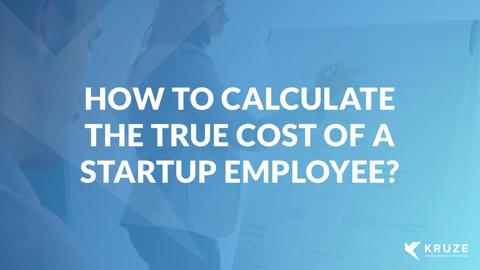
Capital preservation focuses on protecting the funds you have, not investing for high growth. Venture capital investors invest in startups to build the business, and don’t expect founders to take on risky financial investments with their venture capital funds. That means that venture capital should be kept in secure investments for a couple of reasons:
- Investments with potentially high yields often fluctuate significantly in value, and investing in them requires a long-term focus of years or decades. Startups typically have runways of six to 18 months, during which they depend on those funds to pay expenses. If your investments drop in value, losses will shorten your runway and cost you credibility with your investors.
- Founders have a fiduciary responsibility to their companies and investors to act in the best interest of the company. High-risk investments that decline in value could expose founders to litigation.
Liquidity
When startup expenses need to be paid, you need liquidity – your funds can’t be tied up and need to be available to you. Certificates of deposit, for example, may provide a higher yield than money market funds, but they lock up cash for a set term. Cashing them early involves paying a penalty. CDs can have a place in a well-thought-out cash management strategy, but you’ll need to plan for different maturity dates as part of a CD “laddering” plan (see below), in which you stagger CD maturities so that funds are available each month.
Risk management
Founders need to be very careful when choosing appropriate savings or investment vehicles for venture capital funds. It’s much better to accept a very low rate of return, or no return, rather than putting money you can’t afford to lose at risk by chasing higher yields. Established options like savings accounts, short-term Treasury bills, money market accounts, and carefully selected CDs are much better choices than more exotic investments.
Managing risk is an important part of effective corporate cash management. Companies need to carefully evaluate the potential risks of their various cash management activities and take steps to minimize or mitigate those risks in order to ensure the availability of funds to meet payroll and other operating expenses.
Additionally, losing money through poor treasury management can be seen as a failure on the part of the startup founder. As the leader of the company, the founder is responsible for making strategic decisions, including managing the company’s finances. Losing some of your VC funding in an esoteric investment can be seen as a sign that the founder was unable to effectively manage the company’s resources, which can be embarrassing.
Finally, losing your startup’s financing through a risky investment can also be embarrassing because it can impact the relationship between the startup and the VC firm. Venture capital firms typically take an active role in the companies they invest in, and losing the firm’s cash can be seen as a breach of trust. This could damage the relationship between the founder and the VC firm, and potentially impact the startup’s ability to raise additional funding in the future.
In short, losing VC cash can be embarrassing for a startup founder because it can be seen as a failure on their part, reflect poorly on the startup itself, and damage the relationship between the startup and the VC firm. Startup founders take plenty of risk - risk in developing a new product, a new go-to-market strategy, etc. Don’t take needless risk with your treasury management.
Yield
In financial markets, reward is tied to risk. To get a greater yield, you have to accept more risk. That’s why this criteria falls below liquidity and safety. You can look at investment options to optimize your yield, but under no circumstances should you look at high-risk investment options.
No exotic investments
This criteria is cautionary. Exotic investments fall outside the traditional investment categories of cash equivalents, bonds, or stocks, which are investment vehicles with increasing degrees of risk. Innovative financial investments will carry much higher risk than traditional investments. Cryptocurrencies, for example, can fluctuate significantly in value, and a large drop could seriously impact your startup’s cash position. As a fiduciary, you could be held legally responsible, and a large investment loss means you will certainly need to have an uncomfortable conversation with your board; investors; any lenders; and possibly vendors, contractors, and your employees.
Sound cash management for startups
Low-risk investments include things like Treasury bills and bonds, certificates of deposit (CDs), and high-quality corporate bonds. These options offer more yield than a standard savings account, and you can use them to create a bond ladder, with a variety of low-risk securities with staggered maturity dates. While each of these options typically require you to invest for a specific term, if you need cash earlier you can normally access your funds by paying a small penalty.
Poor cash management decisions can affect both your current startup, and potentially any future ventures. Bad investments could lead to a negative perception that could make other investors wary of working with you. For startup cash management, safety and liquidity should be your warchwords. For more information about cash management for your startup, please contact us.



